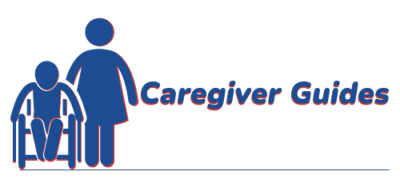
Caregiving can be a difficult job. It can be stressful for any healthcare professional such as a nurse, social worker, or even a nursing assistant. But that’s part of the job. It’s what they’ve trained for. Caring for someone when you’re a family member who has no formal training or experience can be downright overwhelming and can contribute to physical and emotional stresses and strains that the caregiver may not even be aware is happening. And it’s more common than you know.
Leave a Comment Below
Let me know what you think of this piece, what you like about it, or, how you think it could be improved.
What is Caregiver Burnout?
A common condition that can develop is what’s called Caregiver Burnout. It’s real and it’s something that all those who are providing care on an ongoing basis need to understand and look out for.
Caregiver burnout is a state of physical, emotional, and mental exhaustion that can (and frequently does) result from the constant stress of caring for someone who needs help, like an elderly parent, a spouse, or a person with special needs, over an extended period of time.
This is because many caregivers tend not to think about their own well being when taking care of a loved one. Their focus is on the needs of their care recipient and the needs of the caregiver often go unmet. This causes stress that builds up over time and leads to feelings of overwhelm, anxiety, and even resentment. These negative feelings have an overall negative impact on the health of the caregiver which in turn affects their ability to provide good care.
The sources of stress for caregivers can be many. For those in the Sandwich Generation, balancing caregiving responsibilities with work and family life can take a toll trying to manage time for each. Then there is the emotional challenges of seeing a loved one in need, and trying best to manage how best to deal with the day-to-day tasks of caring for them. As this stress builds, the caregiver’s well-being can take a hit and eventually this can lead to burnout.
What to Look for in Caregiver Burnout
The physical exhaustion, mentioned above, happens when the physical demands of hands on caregiving combine with lack of sleep and poor nutrition leading to physical burnout or illness. The day in and day out of physically assisting the care recipient with ADLs like bathing, dressing, and transferring them from place to place, eats up a lot of physical energy. But, then there are the household chores, shopping, and running of errands that require caregivers to dig a little deeper into their reserves and over time, these reserves become depleted. All this leads to a weakened immune system, increased susceptibility to illness, and overall physical decline.
The emotional exhaustion, also mentioned above, is characterized by a sense of sadness, frustration, or even anger. These emotions can and often do become overwhelming due to the constant demands of having to provide care. It’s ironic because this emotional exhaustion is generally due to the caregiver’s compassion for the loved one, the desire to provide the very best care possible, or the challenges of navigating frequently complex family dynamics. This emotional burden of caregiving also takes a toll on the caregiver’s mental health, leading to feelings of depression, anxiety, or irritability.
Mental exhaustion is the result of trying to juggle and balance all the responsibilities that are inherent in the multiple hats the caregiver usually wears. Not only is the caregiver managing the life and responsibilities of the care recipient, but they also have to manage their own day to day dealings, and that of maintaining a home with all the responsibilities inherent in that. This mental fatigue can manifest as difficulties in concentrating, forgetfulness, and a decrease in problem-solving abilities, which can lead the caregiver to believe that they may have an undiagnosed health condition themselves. Over time, this can lead to burnout and really negatively impact the ability of the caregiver to function.
With all this in mind, it’s important for caregivers to recognize the signs of burnout and make sure to take steps to manage their stress levels. Don’t be afraid or ashamed to ask for support from friends, family, or even, caregiver support groups Caregivers have got to make time for self-care, and learn strategies and techniques for stress-reduction to manage their own health so they can continue in the role of caregiver.
Signs of Caregiver Burnout
Some common symptoms of caregiver burnout include:
- Chronic fatigue
- Increased irritability or mood swings
- Feelings of helplessness or hopelessness
- Difficulty concentrating or making decisions
- Social withdrawal or isolation
- Changes in sleep patterns
- Changes in appetite or weight
- Loss of interest in activities once enjoyed
- Increased susceptibility to illness
- Feelings of guilt or inadequacy in caregiving
It’s important to prevent or manage caregiver burnout sooner rather than later. For caregivers , it’s essential to prioritize self-care. Make sure to seek out social support from friends or a support group. Try your best to establish a balance between caregiving and your personal life. Make sure that you recognize when it might be necessary to enlist the help of others or professional services so that you get the break that you need.

Bryan Williams
Physical Therapist
is a licensed therapist with near 30 years of professional experience treating a diverse patient population in a multitude of settings. With simple strategies, he educates and empowers his clients with simple strategies to help them move better and with less pain.


